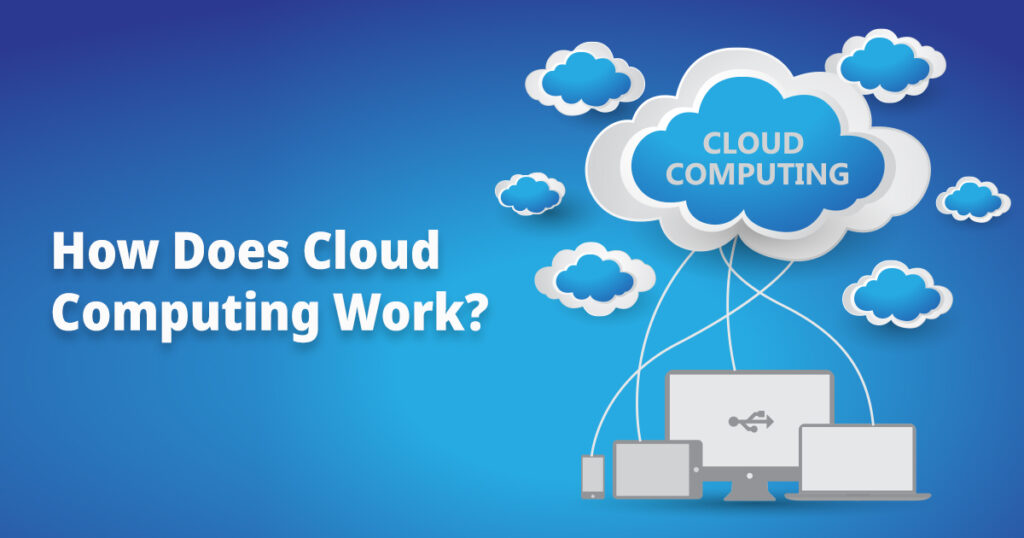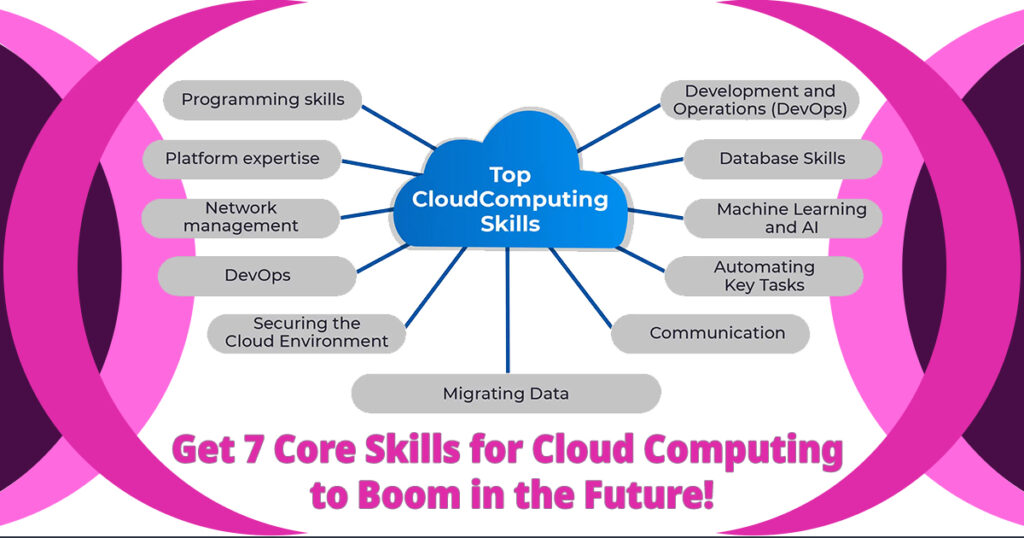In this fast-paced technological landscape, having skills for cloud computing will be a game-changer as it’s a revolutionary technology that allows users to access computer services, including software, storage, and processing power, through the internet.
Overall it has become a buzzword. Because it enables users to store and access data and applications from remote servers, rather than a local computer or server. It can say that cloud has revolutionized the way businesses and individuals store, manage, and process data. With the rise of cloud computing, the demand for skilled cloud professionals has also increased.
Being the advanced technology, it’s important to get proper know-how for the tech-passionates. However, it’s not enough to simply have knowledge of cloud computing. Cloud professionals need to have specific skill sets to be successful in their roles. So, this guide will not be less than a blessing in disguise. Because here, you will get top skills for cloud computing along with its key benefits and how it works to be revolutionary.
A Brief Note On Cloud Computing
Cloud Computing is the delivery of computing services including servers, storage, databases, networking, software, analytics, and intelligence over the internet. In other words, it is the online delivery of on-demand computing resources, including applications. These resources are delivered through a network of remote servers, which are hosted on the internet.
Cloud computing can be divided into THREE primary service models;
Infrastructure as a Service (IaaS), Platform as a Service (PaaS), and Software as a Service (SaaS).
IaaS
Infrastructure as a Service (IaaS) is one of the cloud computing models that provides users with access to virtualized computing resources, including resources, storage, and networking. With IaaS, users have complete control over the operating system and applications, while the cloud provider manages the infrastructure, including the servers and storage.
PaaS
Platform as a Service (PaaS) provides users with a platform for developing, deploying, and managing applications. With PaaS, users have access to the underlying infrastructure (servers and storage), but the cloud provider manages the operating system, middleware, and runtime environment.
SaaS
Software as a Service (SaaS) is the well-known cloud computing model that provides users with access to software applications that are hosted on the cloud provider’s servers. With SaaS, users access the software through a web browser or mobile app, and the cloud provider manages the infrastructure, including the servers, storage, and operating system.
How Does Cloud Computing Work?

As discussed above, cloud computing works by providing users with access to computing resources over the internet. These resources are hosted on remote servers that are managed by a cloud provider. Users can access these resources through a web browser, web portal, mobile app, or API. And the cloud provider manages the whole infrastructure, including servers, storage, and operating system.
The cloud provider uses a virtualization layer to create virtual machines (VMs) that run on the physical servers. Each VM is a self-contained environment with an operating system, applications, and data. The virtualization layer enables the cloud provider to share the physical resources, including the processors, memory, and storage, among multiple VMs.
Key Benefits of Cloud Computing
Cloud computing offers several benefits for businesses of all sizes, including;
Cost Savings
Cloud computing enables businesses to reduce their IT costs by eliminating the need to purchase and maintain on-premise hardware and software. Instead, businesses can pay for the computing resources they need on demand, and the cloud provider manages the infrastructure.
Scalability
With cloud computing, businesses can scale their computing resources up or down as needed. There is also no need to purchase any additional hardware or software. This makes it easy for businesses to meet changing demands, such as seasonal spikes in traffic.
Flexibility
This latest digi skill lets all-sized businesses work from anywhere, on any device, as long as they have an internet connection. This makes it easy for businesses to enable remote work, and to provide their employees with the flexibility they need to work from home or on the go.
Security
Cloud computing providers invest heavily in security measures to protect their customers’ data. This includes physical security measures, i.e., data center security and access control. Moreover, all the data stored on the cloud servers are encrypted, which means scrambled. This way, it will be harder for cybercriminals to access the data.
See the 7 Core Skills for Cloud Computing
Altering the way of controlling software, operations, and networking via traditional physical servers, since August 2006, the term cloud computing came into use. Now, its demand is going to increase with the advancement in the various online working mode and getting popular in the remote work environment.
When technology has gotten such a huge hype, it has become inevitable for all those tech professionals who are interested to work in the back office. For this, nothing more, just learn the below-discussed 7 top skills for cloud computing that will prove so crucial for their bright future. So, let’s move to come to know about them.
#1. Technical Proficiency
Being the most important skill for cloud professionals, technical proficiency is inevitable to learn. As cloud computing is a technical field and has a solid foundation in computing, networking, and storage are essential. A cloud professional should have a deep understanding of cloud infrastructure, virtualization, and automation. They should also have experience in at least one cloud platform, like; AWS, Google Cloud, or Microsoft Azure.
#2. Security
With data breaches and cyber-attacks becoming more common, security has become a top priority in cloud computing. A cloud professional must understand the security risks associated with cloud computing and have experience in implementing security measures to protect data. They should also be able to identify vulnerabilities and implement countermeasures.
#3. Data Management
Data is the lifeblood of many businesses, and a cloud professional should have a strong understanding of data management. They should be able to design and implement data architectures that are scalable, reliable, and efficient. They should also be able to manage data across different cloud platforms and integrate data from various sources.
#4. Business Acumen
A cloud professional should have a solid understanding of the business value of cloud computing. They should be able to articulate how the cloud can help a business achieve its goals, reduce costs, and increase efficiency. They should also be able to communicate with stakeholders and understand their needs.
#5. Collaboration
Cloud computing is a team sport and a cloud professional should be able to collaborate effectively with other team members. They should be able to work with cross-functional teams, such as developers, operations, and security, in order to ensure that the cloud environment is optimized for the business.
#6. Problem-Solving
Cloud computing is not without its challenges, and a cloud professional should be able to solve problems quickly and efficiently. They should be able to troubleshoot issues and identify root causes. Not only this, rather, they should also have the capability to develop and implement solutions that minimize the impact of any problems.
#7. Continuous Learning
Besides several other key skills for cloud computing, a cloud professional should be committed to continuous learning. As this is a rapidly evolving field, there are always new technologies and techniques to learn. A cloud professional should stay up-to-date with the latest developments in this field and be willing to learn new skills.
Summing Up
As cloud computing has become an essential part of many businesses, skilled cloud professionals are in high demand. Whether a newbie or a tech-buzz, all have come to know about this revolutionary computing technology. This piece of content provides you the basic to somewhat advanced knowledge about the said field.
It doesn’t matter what you have already learned, but the matter is what you’re learning today. So, re-read this guide if you want to grow your career as a cloud computing professional. Because here you can learn 7 core skills for cloud computing which are must-haves to boom in the future, as the upcoming time is predicted to overtake lives with high-tech industry.
